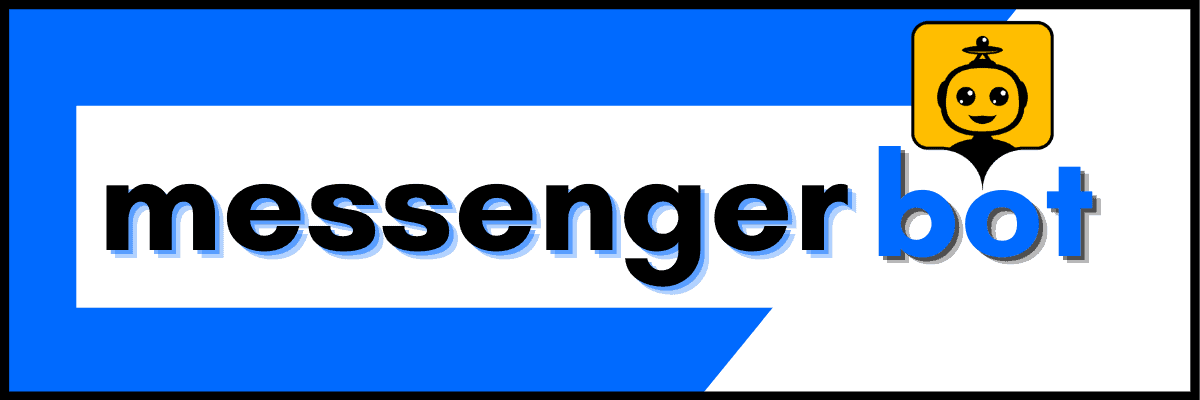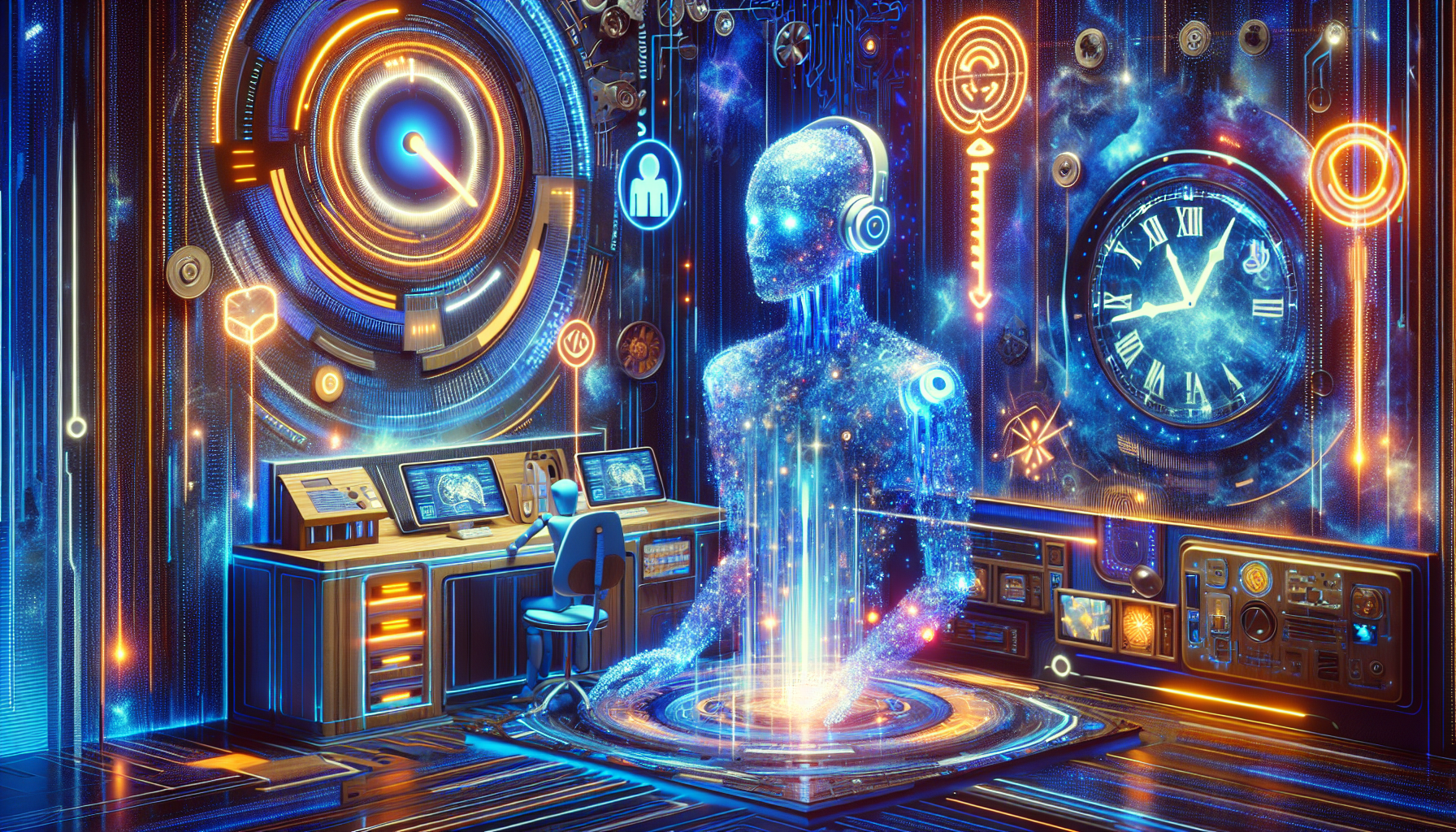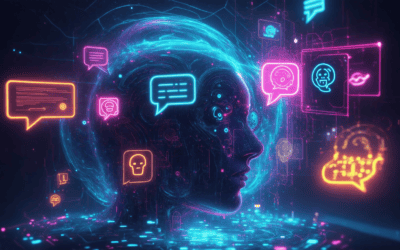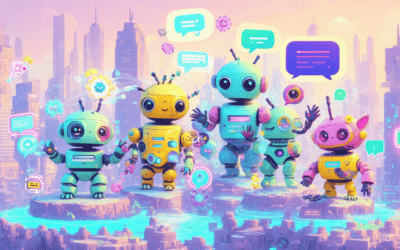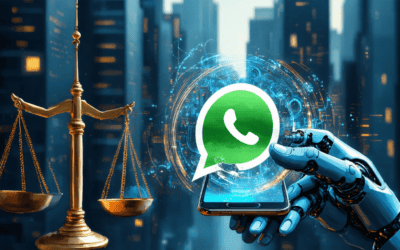In the rapidly evolving landscape of the hospitality industry, the chatbot hoteleiro has emerged as a transformative tool that enhances guest experiences and streamlines operations. This article delves into the multifaceted world of chatbots para hotéis, exploring their key functionalities, benefits, and real-world applications. We will begin by defining what a chatbot hoteleiro is and examining its essential features that make it indispensable for modern hotels. Next, we will clarify common misconceptions, such as whether tech leaders like Elon Musk own chatbots, and discuss the implications of their influence on chatbot hotel technology. Additionally, we will compare free and paid options available for chatbots de hospitalidade, helping you make informed decisions for your establishment. Furthermore, we will highlight the common functionalities of these chat bots for hotels and provide a compelling chatbot de hotel to illustrate their impact. Finally, we will look ahead to future trends in chatbots de hospitalidade, showcasing innovations that promise to redefine customer service in the sector. Join us as we uncover the potential of chatbots hotels and their role in shaping the future of hospitality.
What is a hotel chatbot?
A hotel chatbot is an advanced AI-driven tool designed to enhance guest interaction and streamline hotel operations. These chatbots can be integrated into various platforms, including hotel websites, mobile applications, and social media channels, providing a seamless communication experience for guests.
Overview of hotel chatbots and their role in the hospitality industry
Hotel chatbots play a crucial role in modernizing the hospitality industry by offering instant communication and support to guests. With the ability to engage with guests 24/7, these chatbots ensure that inquiries are addressed promptly, enhancing overall guest satisfaction. By automating routine tasks, hotel chatbots free up staff to focus on more complex guest needs, thereby improving operational efficiency.
Key features of a chatbot for hotels
Key functionalities of hotel chatbots include:
- Comunicação Instantânea: Guests can engage with the chatbot 24/7 to ask questions, receive immediate responses, and clarify any doubts regarding their stay.
- Booking Management: Chatbots facilitate the booking process by allowing guests to check availability, make reservations, and modify existing bookings directly through the chat interface.
- Service Requests: Guests can request services such as room service, housekeeping, or maintenance through the chatbot, ensuring a quick and efficient response from hotel staff.
- Recomendações Personalizadas: Utilizing data analytics, hotel chatbots can offer tailored suggestions for local attractions, dining options, and activities based on guest preferences and previous interactions.
- Integração com Plataformas de Mensagens: Many hotel chatbots can also be integrated with popular messaging apps like Facebook Messenger, allowing guests to communicate through their preferred channels, enhancing user convenience.
Recent studies indicate that implementing a hotel chatbot can significantly improve guest satisfaction and drive revenue by increasing booking conversions and reducing operational costs (Source: Hospitality Technology). Furthermore, as the hospitality industry continues to embrace digital transformation, chatbots are becoming essential tools for enhancing guest experiences and optimizing service delivery (Source: Escola de Administração Hoteleira da Universidade Cornell).
By leveraging AI technology, hotel chatbots not only improve operational efficiency but also foster a more engaging and personalized experience for guests, ultimately leading to higher customer loyalty and repeat bookings.
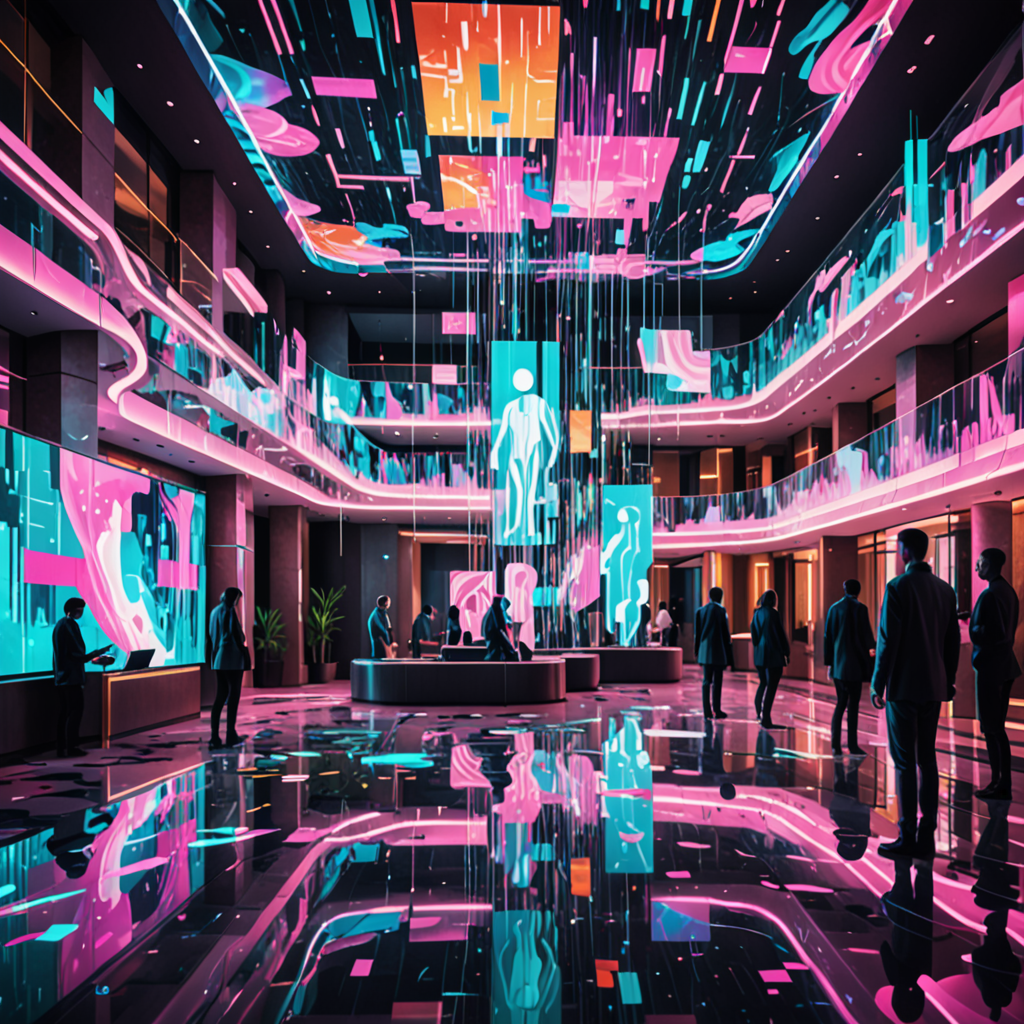
O que é um bot na indústria hoteleira?
Um bot na indústria hoteleira, comumente referido como um chatbot hoteleiro, is an advanced software application designed to facilitate automated conversations between hotels and potential guests through various digital platforms, including the hotel’s website and messaging apps like Facebook Messenger. These chatbots utilize artificial intelligence (AI) and natural language processing (NLP) to understand and respond to guest inquiries effectively.
Types of bots used in the hotel sector
In the hospitality industry, several types of bots are utilized to enhance guest interactions and streamline operations. The most common types include:
- Reservation Bots: These chatbots assist guests in making reservations, checking availability, and managing bookings. They simplify the booking process, ensuring a seamless experience for users.
- Bots de Atendimento ao Cliente: These bots provide 24/7 support, answering questions about hotel amenities, policies, and local attractions. They help reduce the workload on human staff while ensuring guests receive timely assistance.
- Bots de Feedback: After a guest’s stay, feedback bots solicit reviews and ratings, allowing hotels to gather valuable insights for service improvement.
- Promotional Bots: These chatbots engage with potential guests through targeted promotions and personalized offers, enhancing marketing efforts and driving bookings.
Benefits of implementing chatbots for hotels
Implementando chatbots para hotéis provides numerous benefits that can significantly enhance operational efficiency and guest satisfaction:
- Eficiência aumentada: By automating routine inquiries and tasks, hotels can free up staff to focus on more complex guest needs, leading to improved service quality.
- Economia de Custos: Chatbots can reduce operational costs by minimizing the need for extensive customer service teams, allowing hotels to allocate resources more effectively.
- Enhanced Guest Experience: With instant responses and personalized interactions, chatbots improve the overall guest experience, leading to higher satisfaction rates and repeat bookings.
- Coleta de dados: Chatbots can gather valuable data on guest preferences and behaviors, enabling hotels to tailor their services and marketing strategies accordingly.
Incorporar um chatbot de hospitalidade into a hotel’s communication strategy can further enhance guest interaction, making it easier for users to engage with the hotel in a familiar environment. Overall, the integration of chatbots in the hotel sector is a strategic move that can drive efficiency, improve guest relations, and ultimately boost revenue.
Elon Musk Possui um Chatbot?
Yes, Elon Musk owns a chatbot named Grok, which is developed by his company xAI. Launched in 2023, Grok is a generative artificial intelligence chatbot that utilizes a large language model (LLM) also named Grok. This initiative is part of Musk’s broader vision to advance AI technologies while addressing concerns about their safety and ethical implications. Grok aims to provide users with conversational AI capabilities, allowing for more natural interactions and responses. The chatbot is designed to integrate with various platforms, enhancing user experience through advanced natural language processing techniques.
For further insights into the development and functionalities of Grok, you can refer to the official site oficial da xAI and recent articles from reputable tech news sources such as TechCrunch e Wired, which discuss the implications of Musk’s ventures in AI and their potential impact on the industry.
Clarifying Misconceptions About Chatbot Ownership
While Elon Musk’s Grok has garnered significant attention, it’s essential to clarify that he is not the sole owner of the chatbot landscape. Numerous companies are developing innovative chatbots para hotéis and other sectors, each with unique features and functionalities. For instance, platforms like IBM AI Chatbots e Salesforce Service Cloud offer robust solutions tailored for various industries, including hospitality. These chatbots enhance customer interactions and streamline operations, showcasing the diverse applications of chatbot technology.
The Influence of Tech Leaders on Chatbot Development
Tech leaders like Elon Musk play a pivotal role in shaping the future of chatbots de hospitalidade and AI technologies. Their investments and innovations drive advancements in natural language processing and machine learning, which are crucial for developing effective chatbots para hotéis. As these technologies evolve, we can expect more sophisticated chatbots de hotel that not only improve customer service but also enhance operational efficiency. By leveraging AI, hotels can provide personalized experiences, automate routine inquiries, and ultimately boost guest satisfaction.
Is Chatbot AI Free to Use?
Yes, many chatbot AI platforms offer free usage options, allowing users to interact with AI chatbots without any cost. This accessibility makes it easier for hotels to explore the benefits of a chatbot hoteleiro without a significant financial commitment. Here are some key points to consider:
Free AI Chatbot Platforms
- Variedade de Opções: Several websites provide free access to AI chatbots, such as ChatGPT by OpenAI, which allows users to ask questions and receive responses on a wide range of topics. Other platforms, like Replika and Chatbot.com, also offer free versions with limited features.
- Bots do Messenger: Many businesses utilize Messenger bots on platforms like Facebook to provide customer support and engage with users. These bots can be accessed for free, although businesses may incur costs related to advertising or premium features.
Limitations of Free Versions
- Feature Restrictions: While free chatbot services are available, they often come with restrictions, such as limited usage hours, fewer features, or slower response times. For example, some platforms may offer premium subscriptions for enhanced capabilities, including advanced natural language processing and personalized interactions.
- Experiência do Usuário: Free chatbot AIs are designed to be user-friendly, enabling users to type questions and receive instant responses. The effectiveness of these chatbots can vary based on the underlying technology and the complexity of the queries.
In conclusion, while there are numerous free chatbot AI options available, users should be aware of potential limitations and consider their specific needs when choosing a platform. For hotels looking to enhance customer engagement, exploring both free and paid chatbots para hotéis can lead to improved service and operational efficiency.

O que o chatbot realmente faz?
Chatbots are advanced AI-driven applications designed to simulate human-like conversations, providing users with instant responses and support. They operate through natural language processing (NLP) and machine learning algorithms, enabling them to understand and respond to user inquiries effectively. In the hospitality industry, a chatbot hoteleiro serves various essential functions that enhance guest experiences and streamline operations.
Common functionalities of hospitality chatbots
- Suporte automatizado ao cliente: Chatbots for hotels can handle a wide range of inquiries, from booking confirmations to room service requests, ensuring guests receive timely assistance.
- Recomendações personalizadas: By analyzing guest preferences and past interactions, a chatbot for hotel can suggest tailored experiences, such as local attractions or dining options.
- Disponibilidade 24/7: Unlike traditional customer service, hotel chatbots provide round-the-clock support, allowing guests to get help whenever they need it.
- Seamless Booking Process: Chatbots can facilitate direct bookings through messaging platforms, simplifying the reservation process for users.
- Coleta de Feedback: After a guest’s stay, chatbots can automatically solicit feedback, helping hotels improve their services based on real-time insights.
Real-world hotel chatbot example and its impact
A notable example of a chatbot hoteleiro is the “Connie” chatbot implemented by Hilton Hotels. This hospitality chatbot utilizes AI to assist guests with information about the hotel and local area, providing recommendations and answering common questions. The impact of Connie has been significant, as it enhances guest engagement and satisfaction while reducing the workload on human staff.
Ao integrar um chat bot hotel solution like Connie, hotels can not only improve operational efficiency but also create a more personalized experience for their guests. The success of such implementations demonstrates the growing importance of chatbots para hotéis in the competitive hospitality landscape.
Can a Restaurant Use a Chatbot?
Yes, a restaurant can effectively use a robô de bate-papo to enhance customer service and streamline operations. Here are some key benefits and considerations for implementing a chatbot for restaurants:
- Gerenciamento de Pedidos: Chatbots can automate the ordering process, allowing customers to place orders directly through messaging platforms like Facebook Messenger or the restaurant’s website. This reduces wait times and minimizes human error in order taking.
- Customer Inquiries: Chatbots can handle frequently asked questions, such as menu items, pricing, and hours of operation. This ensures that customers receive immediate responses, improving their overall experience.
- Reservation Systems: Many chatbots can integrate with reservation systems, allowing customers to book tables seamlessly. This feature can help manage seating capacity and reduce no-shows.
- Recomendações personalizadas: Advanced chatbots can analyze customer preferences and suggest menu items based on past orders or dietary restrictions, enhancing the dining experience.
- Coleta de Feedback: After a dining experience, chatbots can follow up with customers to gather feedback, which can be invaluable for improving service and menu offerings.
- Eficiência de custos: By automating routine tasks, restaurants can allocate staff resources more effectively, focusing on providing exceptional in-person service while the chatbot handles basic interactions.
- Integration with Marketing: Chatbots can be programmed to send promotional messages, special offers, or loyalty program updates, helping to engage customers and drive repeat business.
According to a report by Business Insider, the use of chatbots in the restaurant industry is expected to grow significantly, with many establishments recognizing the potential for increased efficiency and customer satisfaction. Implementing a chatbot para hotéis and restaurants can be a strategic move for businesses looking to enhance their service offerings and stay competitive in a rapidly evolving market.
Benefits of Chatbots for Restaurants and Hospitality Businesses
Integrando um chatbot de hospitalidade into restaurant operations offers numerous advantages:
- Maior envolvimento do cliente: Chatbots provide 24/7 availability, ensuring that customer inquiries are addressed promptly, which can lead to higher satisfaction rates.
- Operações Simplificadas: By automating tasks such as order taking and reservations, restaurants can improve operational efficiency and reduce the workload on staff.
- Coleta de dados: Chatbots can gather valuable customer data, helping restaurants understand preferences and trends, which can inform menu development and marketing strategies.
- Economia de Custos: Reducing the need for extensive staff during peak hours can lead to significant cost savings while maintaining high service levels.
As the hospitality industry continues to evolve, adopting chatbots para hotéis and restaurants will be crucial for staying ahead of the competition and meeting customer expectations.
Future trends in hotel chatbots
The landscape of hotel chatbots is rapidly evolving, driven by advancements in technology and changing consumer expectations. As hotels strive to enhance guest experiences, the integration of innovative features in chatbots de hotel is becoming increasingly important. Here, we explore the key innovations in chatbot technology for hotels and the evolving role of these tools in customer service.
Innovations in chatbot technology for hotels
Recent innovations in chatbots para hotéis are transforming how hospitality businesses interact with guests. Some notable advancements include:
- AI-Powered Personalization: Chatbots modernos chatbots de hospitalidade leverage artificial intelligence to deliver personalized experiences. By analyzing guest data, these chatbots can recommend services, suggest local attractions, and tailor responses based on individual preferences.
- Reconhecimento de Voz: The integration of voice recognition technology allows guests to interact with chatbots hotels using natural language. This hands-free approach enhances convenience, especially for guests who prefer voice commands over typing.
- Capacidades Multilingües: As the hospitality industry caters to a global audience, chatbot hotel solutions are increasingly equipped with multilingual support. This feature ensures that guests can communicate in their preferred language, enhancing their overall experience.
- Integração com Dispositivos IoT: The rise of smart hotel rooms has led to the integration of chatbots for hotel services with Internet of Things (IoT) devices. Guests can control room settings, request services, and receive information through their chatbots, creating a seamless experience.
The evolving role of hospitality chatbots in customer service
O papel do chatbots de hospitalidade in customer service is expanding beyond simple inquiries. Here are some ways in which these chatbots are evolving:
- Disponibilidade 24/7: Uma das principais vantagens de chatbots de hotel is their ability to provide round-the-clock support. Guests can receive assistance at any time, improving satisfaction and reducing wait times for responses.
- Gerenciando Consultas Complexas: Advanced AI algorithms enable chatbots to handle more complex queries, providing detailed information about hotel policies, amenities, and local attractions. This capability reduces the burden on human staff and enhances operational efficiency.
- Coleta de Feedback: Chatbots hotels can proactively solicit feedback from guests post-stay, allowing hotels to gather valuable insights and improve their services. This data can be instrumental in shaping future offerings.
- Seamless Integration with Booking Systems: The integration of chatbots with hotel booking systems allows guests to make reservations directly through the chat interface. This streamlines the booking process and enhances user experience.
As the hospitality industry continues to embrace technological advancements, the future of chatbots de hotel looks promising. By staying ahead of these trends, hotels can enhance guest experiences and maintain a competitive edge in the market.
